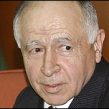
Dagestan’s Troubled Elections has Ripple Effects in Moscow
Publication: Eurasia Daily Monitor Volume: 6 Issue: 200
By:

On October 26, a group of demonstrators rallied in Moscow to protest against the results of the mayoral election in the southern Dagestani city of Derbent on October 11. Over 300 people were reported to have taken part in the protest. Derbent’s acting mayor, Felix Kaziahmedov, claimed victory in the election, while his main opponent, Imam Yaraliev, declared the election fraudulent. Now the opposition is trying to overturn the results of the election, citing the fact that over one-third of the city’s polling stations failed to open for voting. Yaraliev, formerly Dagestan’s prosecutor-general and currently the head of a Dagestani district, stated that Dagestan’s President Mukhu Aliev, had opposed him and helped the city’s acting mayor. Felix Kaziahmedov, for his part, accused Yaraliev of bribing the voters and of issuing threats. Yaraliev and his supporters mutedly threatened the government authorities, saying that it was hard for them to stay within the realm of legality given that the authorities did not comply even with court decisions (www.kavkaz-uzel.ru, October 26).
The authoritative Dagestani newspaper Novoe Delo provided astonishing figures on the resources that were spent in the electoral campaign in Derbent, which has a population of a little more than 100,000. According to the weekly, the campaign cost the two principal candidates, Yaraliev and Kaziahmedov, over $30 million. The publication claimed that $1 million dollars was spent by one of the candidates’ teams to assure that a third candidate withdrew from the race. It also claimed that local elections previously cost $100,000 to $200,000 and that even the elections for a deputy to the Russian State’s Duma cost around $2 million (Novoe Delo, October 16).
The importance of the Derbent election for Dagestani President Mukhu Aliev, who allegedly threw his weight behind one of the candidates in the race, may be due to the fact that Aliev’s presidential term ends in early 2010. Aliev, who is 69 years old, is thought to have strong ambitions to stay in power after his first term expires, and thus, he is trying to demonstrate to Moscow that he can provide the desired outcomes in local elections while solidifying his grip on power. Despite his evident success, some observers in Dagestan regard his victory in Derbent as a feat that will weaken him over time because of his overuse of resources.
Despite the questionable techniques used during the October 11 elections in Dagestan, they also demonstrated how Dagestan stands out in the region for its political pluralism. Not only was the public served diverse opinions on the elections in the print media, but opposing views even made it to the republic’s TV screens, something not normally observed elsewhere in the North Caucasus or even Russian regions outside the North Caucasus (Dagestanskaya Pravda, October 22).
Dagestan’s ethnic diversity forces the republic’s government to concede to power-sharing schemes with ethnic clans. On October 28, Dagestan’s president appointed another deputy to the prime minister in a reflection of the republic’s complex ethnic make-up, thus bringing the number of his deputies to seven -that is, one less than the number of deputies serving Russian Prime Minister Vladimir Putin. Earlier, President Aliev expressed his wish to inscribe an ethnic power sharing scheme even in the republic’s laws, something that Moscow has opposed, given the fact that it has been trying to sustain a rigid “power vertical” under which all subjects of the Russian Federation appear to be the same (www.kavkaz-uzel.ru, April 23).
Political struggles in Dagestan go hand in hand with violence against its law enforcement agencies. On October 28 alone, one member of the military, two policemen and one civilian were killed in three different locations in the republic. It is ironic that the same Dagestani villages Chabanmakhi, Karmakhi and several others that had declared the primacy of the Sharia law back in 1999 were declared a counterterrorist operation zone on October 28 –ten years later– as if there had been no continual counter-terrorist operation going on in Chechnya and Dagestan all these years (www.kavkaz-uzel.ru, October 28).
Russian interior ministry troops felt so unsafe in these villages that after dark they reportedly suspended their mop-up operation, waiting for dawn in the area that the Russian military had swept through in 1999, at the beginning of the second Russian-Chechen war. No militants were harmed during the eight hours of the operation, but the Special Forces suffered one casualty (www.riadagestan.ru, October 28). On October 25, two separate explosions shook Dagestan’s capital Makhachkala. A policeman was injured when a police bus came under attack and a railway was damaged in another explosion (www.kavkaz-uzel.ru, October 25).
The situation in Dagestan is displaying a continuing trend of destabilization, as important public institutions like elections do not function as designed and the non-systemic opposition continues its attacks even in the areas it was supposedly cleansed from by the security services ten years ago. The current leadership of Dagestan appears to be too consumed by the ongoing power struggle to think about anything beyond reaching its short-term political goals.




